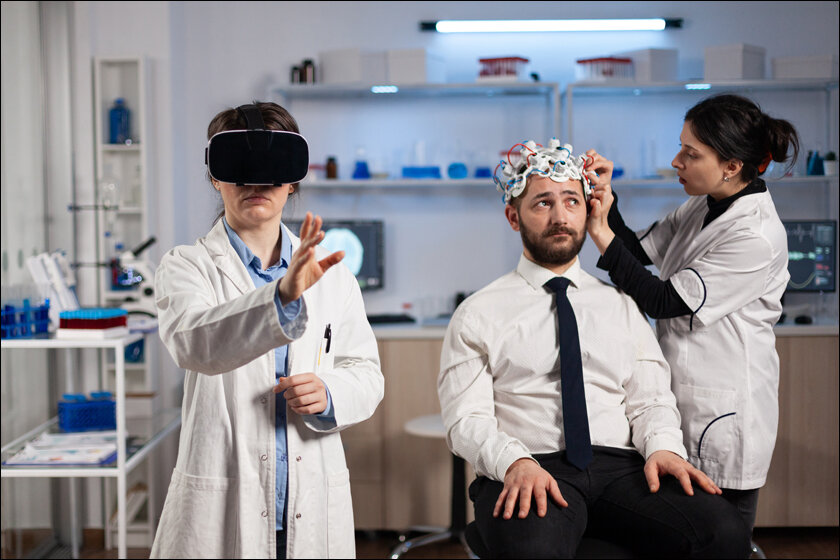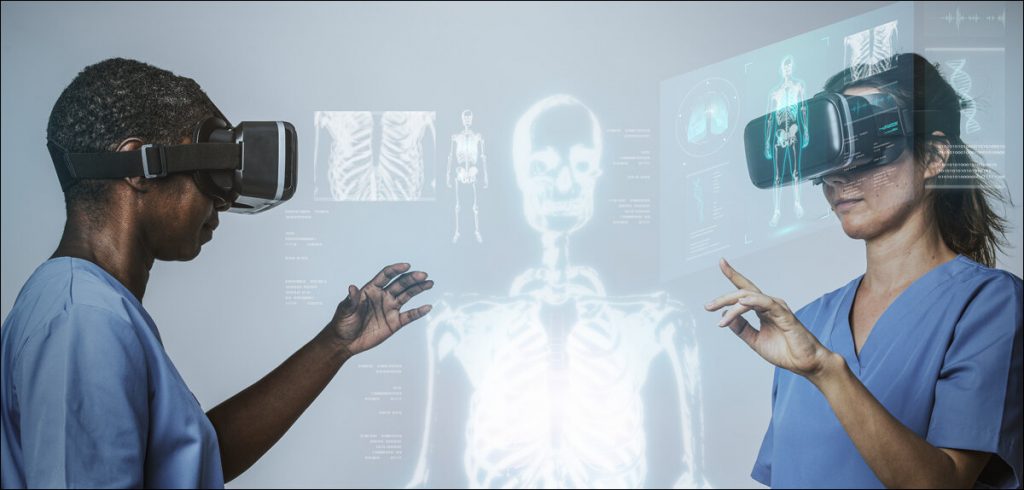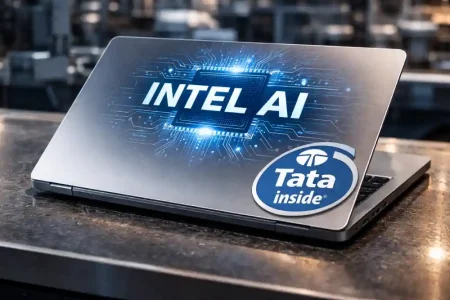There is a need for a delicate balance between technological efficiency and preserving the invaluable human touch in patient-doctor relationships.
In the ever-evolving landscape of healthcare, the convergence of emerging technologies brings forth a myriad of opportunities and challenges. This exploration delves into the ethical and legal dimensions accompanying transformative advancements, emphasizing the critical importance of privacy, regulatory compliance, and equitable access. As artificial intelligence and automation redefine medical practices, ethical implications come to the forefront, demanding careful consideration.

Additionally, the article navigates through future trends such as Virtual Reality, Augmented Reality, and the Internet of Medical Things, shedding light on the potential they hold and the challenges they pose. Amidst the excitement of innovation, the piece underscores the need for a delicate balance between technological efficiency and preserving the invaluable human touch in patient-doctor relationships.
Ethical and Legal Considerations
As emerging technologies persist in reshaping the healthcare landscape, it becomes imperative to scrutinize the ethical and legal dimensions accompanying these advancements. Addressing crucial aspects such as privacy, data security, regulatory compliance, and equitable access becomes paramount in navigating the evolving intersection of technology and healthcare.
Privacy and Data Security:
The escalating digitization of healthcare data and the integration of technology-driven solutions underscore the critical importance of prioritizing patient privacy and ensuring robust data security measures. Healthcare organizations face the imperative of implementing stringent safeguards to shield sensitive patient information from the risks of data breaches and unauthorized access. Essential measures encompass encryption protocols, secure network infrastructure, and unwavering adherence to privacy regulations, exemplified by the Health Insurance Portability and Accountability Act (HIPAA), all of which are pivotal in upholding patient trust and maintaining the utmost confidentiality.
Regulatory Compliance and Patient Consent:
Ensuring ethical practices in healthcare technology necessitates strict compliance with legal and regulatory frameworks. Adherence to guidelines, such as the General Data Protection Regulation (GDPR), is foundational. Obtaining informed patient consent for the collection, storage, and usage of data is a crucial aspect of ethical healthcare practices. Transparent communication regarding the utilization of data and explicit consent for sharing or research purposes are integral ethical considerations that demand careful attention and implementation.

AI and Automation’s Ethical Implications in Healthcare:
The growing integration of AI and automation in healthcare sparks critical ethical inquiries. Concerns surrounding algorithm bias, accountability for AI decisions, and the potential for job displacement necessitate meticulous scrutiny. Upholding ethical standards in AI-driven healthcare demands measures such as ensuring transparency in AI algorithms, addressing bias in training data, and establishing explicit guidelines for human oversight. These considerations are vital in navigating the ethical complexities that arise with the increasing reliance on artificial intelligence within the healthcare domain.
Ensuring Equitable Access to Healthcare Technology:
As technology indisputably integrates into healthcare, ensuring equitable access for all individuals, irrespective of geographic location or socioeconomic status, emerges as an imperative. Ethical considerations mandate addressing the digital divide by providing training and support for underserved communities. Additionally, developing policies to bridge the gap between technological advancements and access to care becomes crucial, underscoring the commitment to inclusivity in healthcare. These ethical imperatives are fundamental to fostering a healthcare landscape that is not only technologically advanced but also universally accessible.
Future Trends and Challenges:
As we peer into the crystal ball of healthcare, envisioning the future, a tapestry of trends and challenges unfolds.
Virtual Reality and Augmented Reality in Healthcare:
The integration of virtual reality (VR) and augmented reality (AR) technologies emerges as a beacon of potential in healthcare. VR, with its ability to craft immersive environments, holds promise for applications in medical training, pain management, and rehabilitation. Meanwhile, AR seamlessly overlays digital information onto the real world, helping in surgical procedures, anatomical visualization, and telemedicine. Nevertheless, the successful implementation of VR and AR in healthcare hinges on addressing challenges encompassing usability, content creation, and ensuring rigorous regulatory compliance. These considerations are pivotal in unlocking the full transformative power of immersive technologies in the realm of healthcare.

Internet of Medical Things (IoMT):
The seamless integration of wearables, sensors, and medical equipment is made possible by the Internet of Medical Things (IoMT), which has the potential to completely transform healthcare delivery and patient monitoring. Vital sign monitoring, real-time data collection, and information transmission to healthcare practitioners for analysis and action are all capabilities of IoMT devices.
However, there are major obstacles to the general use of IoMT, including assuring data security, compatibility, and standardization. Additionally, strong infrastructure and analytics skills are needed to manage the large flow of data created by connected devices.
Implementation and Integration Challenges:
The effective integration and deployment of new technology into current healthcare systems is one of the main obstacles to their adoption. When implementing new technology, healthcare companies must deal with compatibility problems, data transfer, and process adaptations. It is imperative that healthcare professionals and technology suppliers work together to guarantee the smooth integration and maximize the advantages of these advancements.
Cost Considerations and Resource Allocation:
There is frequently a financial cost associated with the adoption of new technology in healthcare. The expenses associated with hiring personnel, providing continuing assistance, and building and maintaining the required infrastructure can be high. To overcome financial obstacles, healthcare organizations need to carefully consider the return on investment, allocate resources in a priority manner, and investigate sustainable funding alternatives.
Maintaining Human Touch and Patient-Doctor Relationship:
Concerns have been raised regarding keeping the human element and the vital patient-doctor interaction intact as technology develops. Technology must be tempered with the requirement for compassionate and tailored interactions, even as it increases efficiency and broadens access to treatment. Healthcare practitioners must walk a tightrope when it comes to using technology to improve patient outcomes and making sure that patients are respected, listened, and understood.
Emerging technologies provide exciting new opportunities for the healthcare sector, with the ability to completely transform it by increasing accessibility, efficiency, and patient-centeredness.

Contact Orient Software right now if you’re prepared to help your company realize the full potential of the newest technology. Our committed team of professionals is ready to talk with you about your project, provide advice, and create a custom software solution that satisfies your set of business needs. Together, let’s go on this life-changing adventure and realize the full potential of cutting-edge technology for the success of your company.
In the ever-evolving landscape of healthcare, the convergence of emerging technologies brings forth a myriad of opportunities and challenges. This exploration delves into the ethical and legal dimensions accompanying transformative advancements, emphasizing the critical importance of privacy, regulatory compliance, and equitable access.
As artificial intelligence and automation redefine medical practices, ethical implications come to the forefront, demanding careful consideration. Additionally, the article navigates through future trends such as Virtual Reality, Augmented Reality, and the Internet of Medical Things, shedding light on the potential they hold and the challenges they pose. Amidst the excitement of innovation, the piece underscores the need for a delicate balance between technological efficiency and preserving the invaluable human touch in patient-doctor relationships.
In case you missed:
- None Found










